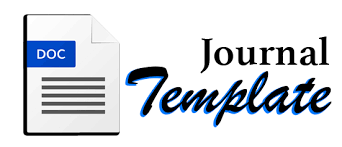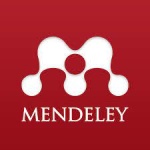REVITALISASI FUNGSI SANGGAR AGAMA SEBAGAI UPAYA MEWUJUDKAN MASYARAKAT DESA BUNGKAL YANG MAJU, BERBUDAYA, DAN RELIGIUS
DOI:
https://doi.org/10.21154/inej.v1i1.2043Abstract
Pendidikan merupakan investasi terpenting dalam mengembangkan dan meningkatkan kualitas sumber daya manusia. Tanpa pendidikan yang memadai, tampaknya sulit mewujudkan kehidupan masyarakat yang maju, berbudaya dan religius, yang siap menghadapi tantangan global. Secara umum, capaian pendidikan di Desa Bungkal, baik yang ada di Dusun Sembung maupun di Dusun Goran, belum mencapai target ideal, hal ini dapat dibuktikan dengan prosentase masyarakat yang menamatkan wajib belajar 9 tahun, yakni sebesar 14,70%, menamatkan wajib belajar 12 tahun sebesar 28, 66%, selebihnya hanya menamatkan jenjang SD. Di satu sisi, untuk mewujudkan visi desa, yakni menjadi desa yang maju, berbudaya dan religius, tentunya harus didukung oleh kualitas pendidikan formal yang ideal, di mana dalam pelaksanaanya menuntut adanya sinergi antara pihak sekolah, keluarga, dan masyarakat secara umum untuk bersama-sama mewujudkan pendidikan yang lebih baik. Berangkat dari latar belakang inilah, penulis tertarik untuk mengeksplorasi peran “sanggar agama” yang ada di Desa Bungkal dalam mewujudkan masyarakat yang maju, berbudaya dan religius.Downloads
Published
2020-06-19
Issue
Section
Articles
License
Please find the rights and licenses in InEJ. By submitting the article/manuscript of the article, the author(s) agree with this policy. No specific document sign-off is required.1. License
The non-commercial use of the article will be governed by the Creative Commons Attribution license as currently displayed on Creative Commons Attribution-NonCommercial-ShareAlike 4.0 International License.
2. Author(s)' Warranties
The author warrants that the article is original, written by stated author(s), has not been published before, contains no unlawful statements, does not infringe the rights of others, is subject to copyright that is vested exclusively in the author and free of any third party rights, and that any necessary written permissions to quote from other sources have been obtained by the author(s).
3. User/Public Rights
The spirit of InEJ is to disseminate articles published are as free as possible. Under the Creative Commons license, InEJ permits users to copy, distribute, display, and perform the work for non-commercial purposes only. Users will also need to attribute authors and InEJ on distributing works in the journal and other media of publications. Unless otherwise stated, the authors are public entities as soon as their articles got published.
4. Rights of Authors
Authors retain all their rights to the published works, such as (but not limited to) the following rights;
Copyright and other proprietary rights relating to the article, such as patent rights,
The right to use the substance of the article in own future works, including lectures and books,
The right to reproduce the article for own purposes,
The right to self-archive the article,
The right to enter into separate, additional contractual arrangements for the non-exclusive distribution of the article's published version (e.g., post it to an institutional repository or publish it in a book), with an acknowledgment of its initial publication in this journal (InEJ: Indonesian Engagement Journal).
5. Co-Authorship
If the article was jointly prepared by more than one author, any authors submitting the manuscript warrants that he/she has been authorized by all co-authors to be agreed on this copyright and license notice (agreement) on their behalf, and agrees to inform his/her co-authors of the terms of this policy. InEJ will not be held liable for anything that may arise due to the author(s) internal dispute. InEJ will only communicate with the corresponding author.
6. Royalties
Being an open accessed journal and disseminating articles for free under the Creative Commons license term mentioned, author(s) aware that InEJ entitles the author(s) to no royalties or other fees.
7. Miscellaneous
InEJ will publish the article (or have it published) in the journal if the article’s editorial process is successfully completed. The editors of Journal may modify the article to a style of punctuation, spelling, capitalization, referencing and usage that deems appropriate. The author acknowledges that the article may be published so that it will be publicly accessible and such access will be free of charge for the readers as mentioned in point 3.




